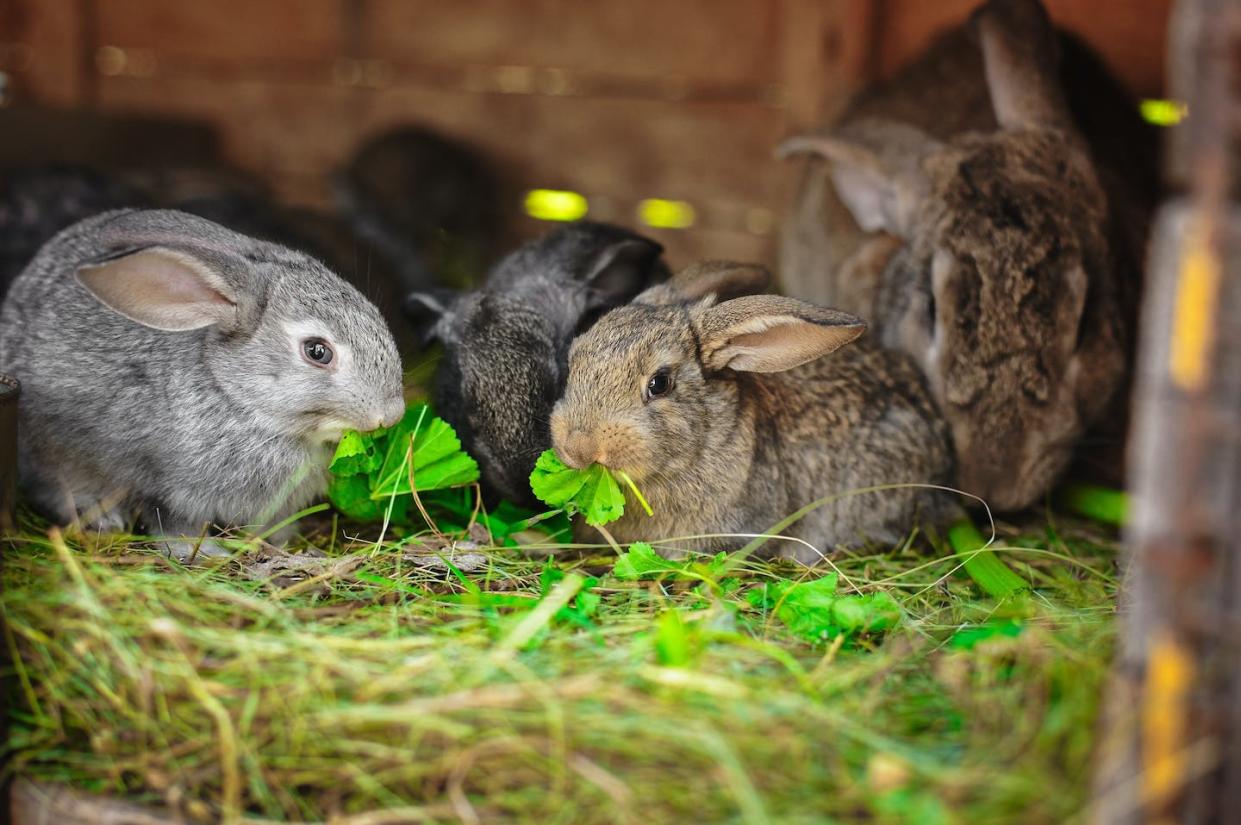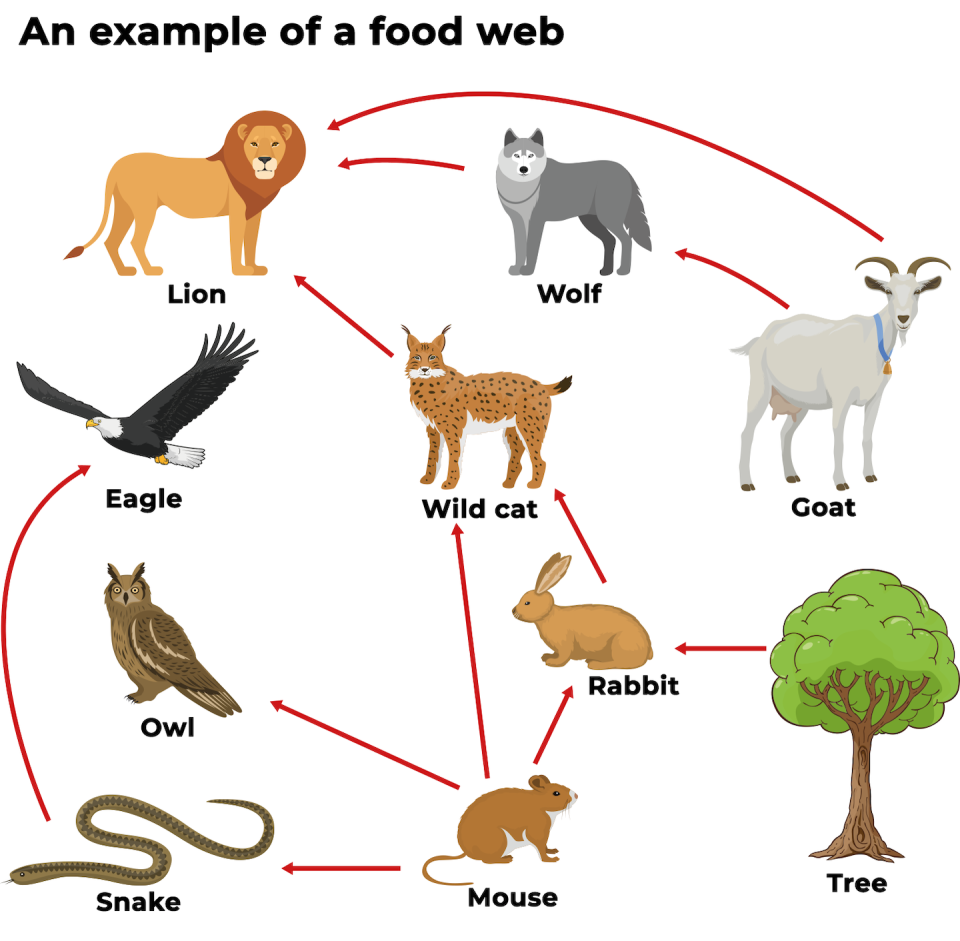Curious Kids: What would happen if all animals on Earth were herbivores?

What would happen if all animals on Earth were herbivores? – Molly, age 9, Melbourne
Thanks for the great question, Molly!
We hear a lot about how humans eating meat is bad for the planet. That’s because making room for the animals that produce meat leaves less space for us to farm plants, and less natural habitat for wildlife. And when all those farm animals burp, it releases methane into the atmosphere and contributes to climate change.
So it’s natural to wonder if all animals, including humans, should be herbivores – in other words, only eat plants.
To answer this question, we first need to understand a little about animals, and herbivores.

Where do animals fit into life on Earth?
The animal kingdom is one branch of life on Earth, alongside plants, fungi, and two (or three, depending on which textbook you read) types of tiny organisms called bacteria.
Animals can be categorised by the main type of food in their diet. Herbivores eat plants or algae. Carnivores eat other animals. And omnivores eat both plants and animals.
But some omnivores and carnivores would die if they had a completely plant-based diet. For example, cats need meat for the nutrients it contains and because they can’t digest plants well. This is true for all cats, from a terrifying tiger to a teeny tabby cat.
So if all animals on Earth only ate plants, millions of carnivore and omnivore species would die out. That’s a problem, because meat-eating animals play an important role on our planet.
Take, for example, scavengers such as vultures, ravens, dogs and flies. They eat other animals that are already dead – and when they poo it out they put important nutrients into the soil so plants can grow.
Without these scavengers, the job of breaking down dead animals would be left to fungi and bacteria. That would mean a lot of dead animals lying around for a lot longer.
There aren’t many things smellier than dog poo – but a rotting kangaroo is one!
Read more: How much meat do we eat? New figures show 6 countries have hit their peak

Carnivores actually help the planet – including humans
The absence of carnivores in an ecosystem can also mean herbivores start taking over an area, making it unlivable for other species. This occurred when wolves were removed from Yellowstone National Park in the United States.
Wolves used to eat deer in the wild. When wolves disappeared, deer populations got too big. They ate too many plants near streams, which caused riverbanks to crumble into the water. Deer also damaged trees used by beavers to build dams. This muddied the water even more, and other animals such as fish couldn’t live there any more.
But the absence of meat-eating animals could also bring benefits.
For example, many native species are endangered because they’re being eaten by introduced predators. Without carnivores, these endangered animals would have more of a chance.
The fate of farm animals is less obvious. If all humans were herbivores then there would be no need to raise animals for meat. That would mean we’d only ever see cows, sheep, chickens and pigs at the zoo.
And what about pets? Cats and dogs need meat to survive. So in a world of herbivores, the biggest animal at the pet shop would probably be a plant-eating guinea pig!
Read more: From foe to friend: how carnivores could help farmers

There are human health aspects to consider, too.
We humans require a few micrograms of vitamin B12 each day, and the best source of this is meat.
If humans only ate plants, we’d need to eat a lot of the primary plant sources of B12 – seaweed, algae and some mushrooms. We’d also probably need to take B12 tablets or other man-made “supplements” containing B12. Making these would require farming a lot more algae and bacteria that naturally produce this essential vitamin.
Of course, many vegans – people who don’t eat animal products – already manage to keep up their B12 levels. But I daresay others would struggle. And a lot of people simply enjoy eating meat. I’d hate to come between a bodybuilder and his or her steak!
Life finds a way
Losing carnivores would clearly have far-reaching consequences. Earth would soon look dramatically different.
But the more I study evolution, the more I realise life finds a way to achieve what seemed impossible.
If all animals on Earth were herbivores, sooner or later a species of herbivore or fungus would evolve into a new form of life that knows how to turn its herbivorous neighbours into a tasty meal.
Read more: Most large herbivores now face extinction, our study shows
This article is republished from The Conversation is the world's leading publisher of research-based news and analysis. A unique collaboration between academics and journalists. It was written by: Mitchell G. Nye-Wood, Edith Cowan University.
Read more:
Mitchell G. Nye-Wood works in a lab group that receives funding from the Australian Research Council.



